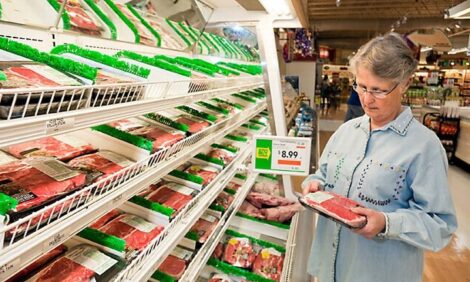



Regulating Grass-Fed Beef: New Labeling and the Rangeland Debate
US - As Hollywood starlets and organic farmers know all too well, popularity often leads to labeling. Soon grass-fed beef will join the list of labels dotting our food. Starting November 15th, the USDA will require grass-fed beef to be labeled and defined as meat that comes from animals who ate nothing but grass after being weaned.In recent years, grass-fed has become increasingly popular because, compared to feedlots, raising cattle on pasture decreases environmental damage, improves animal health and reduces antibiotic use. Grass-fed beef also confers human health benefits with high levels of Omega-3 fatty acids, which can reduce the incidence of heart disease.
According to a Texas A&M brief, a standard like one used with organics will allow producers to develop and market their products and provide consumers with a better understanding of their food.
Under the new rules, animals will only be allowed to eat grass or stored grasses like hay, and will have access to pasture from last frost to first frost. Ranchers will have their farms and records inspected by the USDA before using the “process verified” seal. Meat can still be labeled grass-fed without the seal if growers document that they follow the standards.
The new regulations are a first for grass-fed meat, and some folks are celebrating. But the American Grassfed Association is not pleased with the regulatory outcome of what has been a five year discussion about defining grass-fed.
As reported in the New York Times, the Denver-based organization does not support the labeling because they do not preclude the use of antibiotics and hormones; they also don’t require grass-fed animals to live on pastures throughout the year. The association also states that non-forage feed is not restricted under the USDA guidelines as long as the use is recorded.
Subsequently, the Association plans to set up its own certification system that would require animals to be on pasture or rangeland all year long and free of hormones and antibiotics. (The Association will accept requests for certification by year’s end.)
Source: New West
Further Reading
|
|
- Go to our previous news item on this story by clicking here. |


